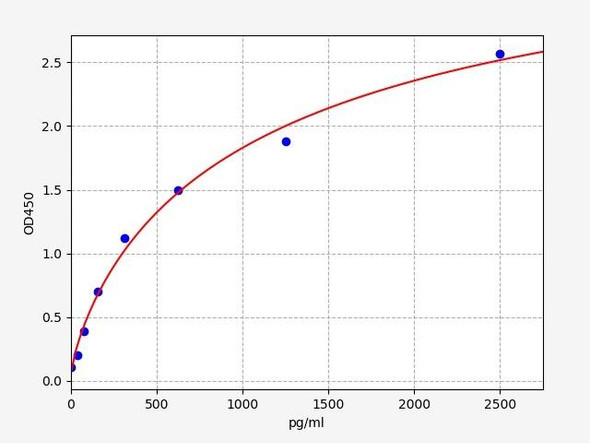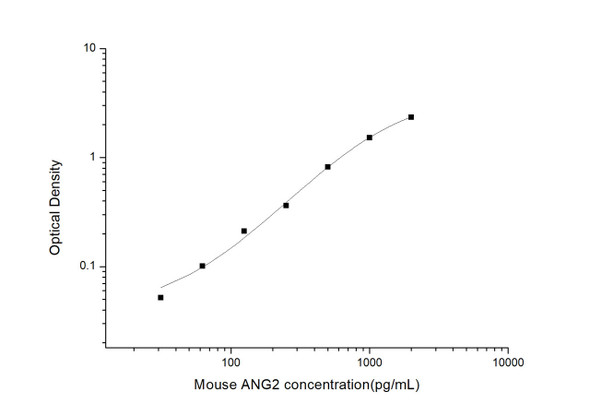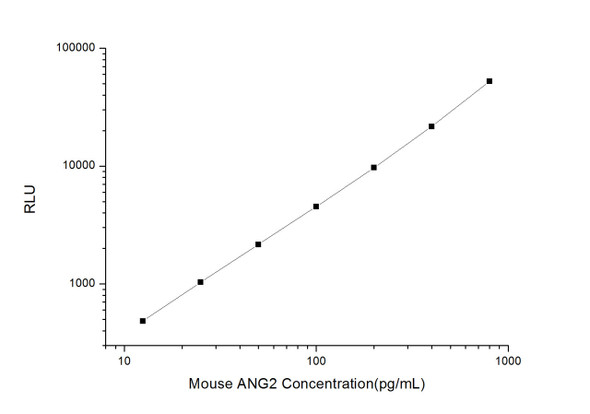Description
| Product Name: | Recombinant Mouse Angiopoietin-2/ANG2 (C-Fc) |
| Product Code: | RPES6650 |
| Size: | 10µg |
| Species: | Mouse |
| Expression Host: | HEK293 Cells |
| Synonyms: | AGPT2, ANG2, ANG-2, angiopoietin 2, Angiopoietin-2, angiopoietin-2a, angiopoietin-2B, angiopoitin 2, ANGPT2, Tie2-ligand |
| Mol Mass: | 81.4 kDa |
| AP Mol Mass: | 90-120 kDa |
| Tag: | C-Fc |
| Purity: | > 95 % as determined by reducing SDS-PAGE. |
| Endotoxin Level: | < 1.0 EU per μg of the protein as determined by the LAL method. |
| Bio Activity: | Testing in progress |
| Sequence: | Tyr19-Phe496 |
| Accession: | O35608 |
| Storage: | Generally, lyophilized proteins are stable for up to 12 months when stored at -20 to -80°C. Reconstituted protein solution can be stored at 4-8°C for 2-7 days. Aliquots of reconstituted samples are stable at < -20°C for 3 months. |
| Shipping: | This product is provided as lyophilized powder which is shipped with ice packs. |
| Formulation: | Lyophilized from a 0.2 μm filtered solution of PBS, pH 7.4. Normally 5 % - 8 % trehalose, mannitol and 0.01% Tween80 are added as protectants before lyophilization. Please refer to the specific buffer information in the printed manual. |
| Reconstitution: | Please refer to the printed manual for detailed information. |
| Background: | Angiopoietin-2 (Ang-2; also ANGPT2) is a secreted glycoprotein that plays a complex role in angiogenesis and inflammation. Both Ang-2 and the related Angiopoietin-1 (Ang-1) are ligands for the receptor tyrosine kinase Tie-2. While Ang-1 is a potent Tie 2 agonist, Ang-2 may act as either a Tie-2 antagonist or agonist, depending upon its state of multimerization. The higher the order of oligomer, the more effective Ang-2 becomes as a Tie-2 agonist. The short isoform appears to block the binding of either Ang-1 or full-length Ang-2 to Tie-2. Ang-2 functions as a pro-angiogenic factor, although it can also induce EC death and vessel regression. Upon its release from quiescent EC, it regulates vascular remodeling by promoting EC survival, proliferation, and migration and destabilizing the interaction between EC and perivascular cells. In addition, ANG-2 is strongly expressed in the vasculature of many tumors and it has been suggested that ANG-2 may act synergistically with other cytokines such as vascular endothelial growth factor to promote tumor-associated Angiogenesis and tumor progression. |






